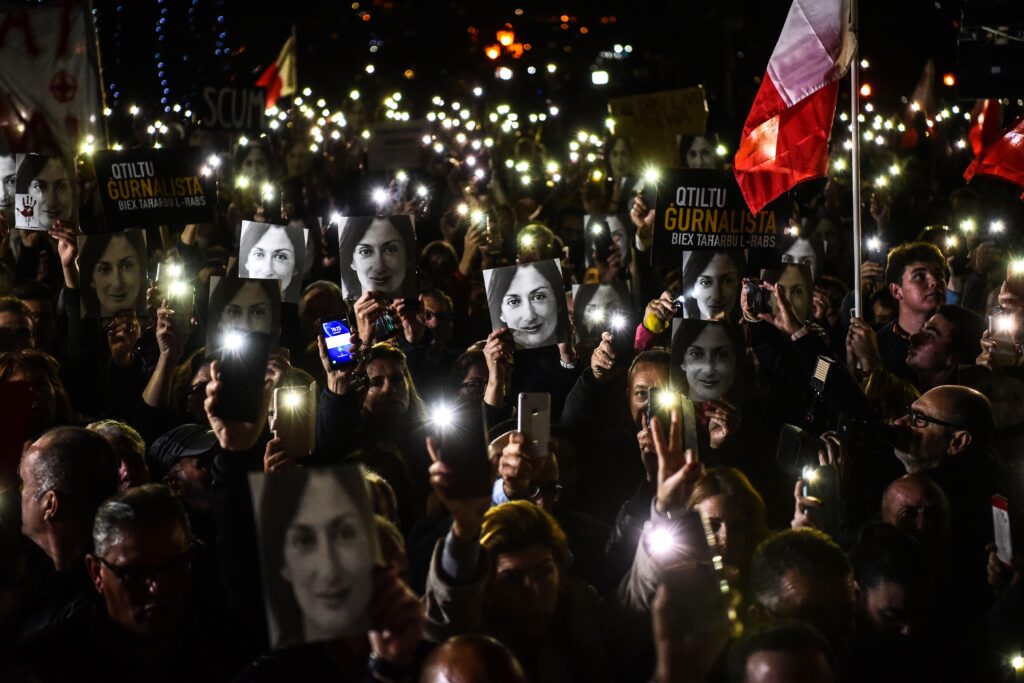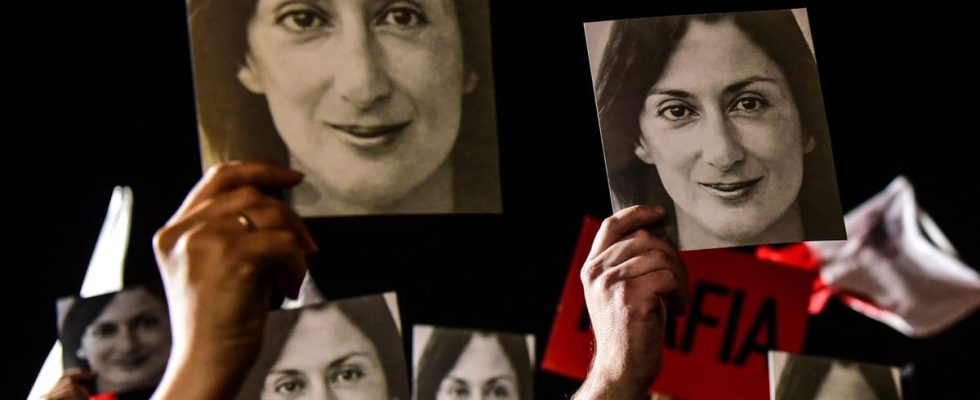When a car bomb killed Maltese investigative journalist Daphne Caruana Galizia in 2017, Brussels promised action to better protect journalists. The European Commission last year forwarded a directive to combat strategic lawsuits against public participation (or SLAPPs), which are used to censor and silence public critics.
But in an interview with POLITICO’s EU Confidential podcast, Daphne Caruana Galizia’s son Andrew Caruana Galizia has lambasted the EU’s watershed anti-SLAPP law as insufficient. “In reality, the proposal as it stands would not have helped my mother in any of her cases,” he said. Daphne Caruana Galizia faced 43 civil and five criminal lawsuits at the time of her death.
In recent years, the EU has seen a rise in SLAPPs: unfounded cases brought against journalists, activists or other public figures, often by wealthy and powerful people, which explicitly aim to stifle free speech and kill legitimate investigation or criticism. Unfounded cases place a massive financial burden on the defendant and act as a deterrent for others to pursue such work.
“The aim of these lawsuits is to deprive the target of time and resources, and to deter others from taking up the same story,” said Andrew Caruana Galizia. For the person who brings the legal case, “a SLAPP is effective if it never ends. The most effective kind of vexatious and frivolous lawsuit is one that drags on forever and ever — and in my mother’s case, until beyond her grave.”
A 2022 report by Media Freedom Rapid Response revealed widespread use of such abusive litigation in 11 European countries over the previous four years — including in Ireland, Bulgaria, Belgium, France, Hungary and Italy.
Andrew Caruana Galizia, who together with his brothers is the co-founder of the Daphne Caruana Galizia Foundation, found the original proposal — outlined by European Commission Vice-President Věra Jourová in April 2022 — acceptable.
His beef is with EU member countries trying to water down the directive. The European Council, which represents these countries, negotiated an agreement on the proposed legislation this past June.
With many member countries wary of EU overreach, the Council’s main changes apply to cross-border rules. Under the current version, the new EU directive would not apply to a plaintiff living in the same country as the defendant.
Lobby group the Coalition Against SLAPPs in Europe (CASE) is also criticizing Council changes preventing early dismissal of cases. In an earlier version of the text, the European Commission proposed that blatantly unfounded cases against journalists or civil society activists be summarily dismissed. But in the Council’s iteration, the case must now be “manifestly unfounded beyond reasonable doubt” — a threshold CASE believes most lawsuits will never meet.
Moving beyond ongoing issues with the Council amendments to the directive, campaigners are more complimentary about the stance of the European Parliament — an institution headed by Maltese politician Roberta Metsola. “The European Parliament has been a huge supporter of strengthening protections for journalists for several years,” Andrew Caruana Galizia said. It’s been pushing for an anti-SLAPP directive and “making a lot of noise” as far back as 2018.
The assassination of Daphne Caruana Galizia shocked not just Malta, but also the wider European and global community. One of the country’s best-known investigative journalists, she relentlessly explored allegations of corruption, including by politicians.
Jourová told POLITICO she’s still hopeful a solution will be found “that will deliver strong and clear rules,” and called for “constructive” discussion among EU institutions in the coming months.

But with trilogues — negotiations among the Commission, Council and Parliament — due to conclude by the end of this year, Andrew Caruana Galizia pointed out it’s difficult to carry forward a campaign that applies mostly to activists and journalists.
“If we don’t get a strong directive now, we’ve missed the boat.”

